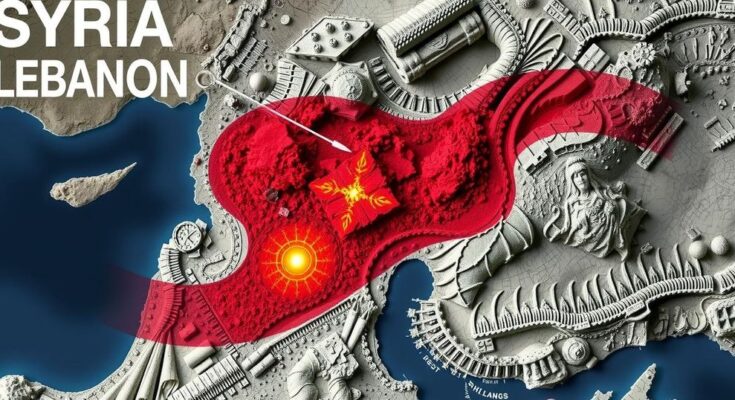Following the fall of Assad’s regime in Syria, the Sunni community in Lebanon has mobilized, demanding the release of Sunni prisoners. This renewed assertiveness comes at a time when Hezbollah is perceived weakened, which complicates Lebanon’s already fragile political landscape. The outcomes of these developments could reshape Lebanon’s future ahead of upcoming presidential elections.
The recent events in Lebanon, sparked by the collapse of the Assad regime in Syria, have led to significant unrest among the Sunni community, particularly in areas like Tripoli and Sidon. Initially, jubilation followed the regime’s downfall, but this soon morphed into demands for the release of Sunni prisoners in Lebanon. Key Islamist figures, including Sheikh Ahmad Shemali, have started leading protests, calling for immediate amnesty for all imprisoned Islamists. This rising movement seeks to reclaim Sunni influence, especially as groups like Tahrir al-Sham gain power in Syria.
Amnesty for imprisoned Islamists, however, would require action from the Lebanese parliament, particularly from Speaker Nabih Berri, who is aligned with Hezbollah. Such a move could pave the way for renewed Syrian influence in Lebanon through Sunni channels, complicating an already fragile political landscape. Hezbollah finds itself weakened after its military engagement with Israel and must navigate challenges such as maintaining its military presence, contributing to the ongoing political crisis in the region.
The leadership of the Lebanese Armed Forces, under General Joseph Aoun, has grown in prominence amid this crisis, particularly following a tense meeting with Hezbollah’s Wafiq Safa regarding military disarmament south of the Litani River. This power struggle underscores the potential for an anti-Hezbollah candidate to emerge in the upcoming presidential elections in January 2025. Moreover, the Christian community in Lebanon is also fragmented, grappling with its alliances amidst Hezbollah’s historical agreements with certain factions.
As the Sunni community awakens to a new political reality, concerns about instability grow, especially in light of past events such as the Islamic State’s incursion into Lebanese territory. Ahmad al Sharaa, a prominent anti-Assad leader, has expressed support for General Aoun’s presidential bid, signaling a complex dynamic ahead. Despite recent tensions, indications suggest that the new Syrian regime will refrain from destabilizing Lebanon in the near term, as it focuses on consolidating power domestically.
However, the longer-term consequences remain uncertain, particularly as the Sunni community in Lebanon seeks to regain lost political ground amid ongoing regional instability.
The article examines the political dynamics in Lebanon following the collapse of the Assad regime in Syria. It highlights the response of the Sunni community in Lebanon, particularly among Islamist factions, as they call for the release of prisoners and seek to regain influence at a time when Hezbollah is perceived as weakened. The implications for Lebanese politics, especially concerning military coordination and the presidential election, are also critical components of the discussion. The evolving relationship between Lebanon and Syria following the regime’s fall is pivotal to understanding the potential for renewed instability in the region. The Syrian conflict has historically affected Lebanon’s political landscape, and with renewed Sunni assertiveness, the balance of power remains in flux, warranting careful observation by policymakers and analysts alike.
In conclusion, the situation in Lebanon remains precarious, influenced heavily by developments in neighboring Syria. The Sunni community’s resurgence and demands for amnesty underscore an evolving political landscape, which could further destabilize the region. As Hezbollah grapples with its diminished standing, the potential for a shift in Lebanon’s leadership dynamics looms large, particularly with the upcoming presidential elections. Overall, the interplay of these factors necessitates close attention as Lebanon navigates its future amid regional upheaval.
Original Source: aurora-israel.co.il




